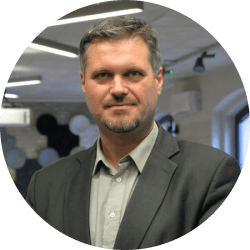Internship (POL116)
Program code:
ECTS:
Teaching language:
Course description
The Economics and Politics Internship is an engaged-learning course, designed to apply knowledge and skills acquired during the studies in the program to real-world processes of economics and politics. Students may complete their internships at:
1) the Seimas of the Republic of Lithuania and institutions accountable to the Seimas;
2) the government of the Republic of Lithuania, and institutions accountable to the government;
3) the European Parliament, the European Commission and other European Union (EU) institutions;
4) foreign diplomatic representative offices;
5) for-profit companies that are involved in economic policy monitoring and / or influencing economic policy;
6) non-governmental organizations (NGOs), influencing policy-making process in Lithuania or beyond.
Students, interning at the Seimas or institutions accountable to the Seimas, get acquainted with:
1) the role of the legislature in political and economic life of the country; daily activities of elected representatives as well as internal dynamics within the parliament;
2) representatives’ strategies of formulating economic policy, representing the interests of voters and interest groups and seeking re-election.
Students, interning at the government or institutions accountable to the government, get acquainted with:
1) the role of the executive in political and economic life of the country; daily activities of cabinet members and bureaucrats as well as internal dynamics within the government;
2) political, bureaucratic and other factors underlying the strategies of cabinet members and bureaucratic processes within state institutions, as they pertain to economic policy.
Students, interning at various EU institutions, get acquainted with:
1) the role of the EU institutions in the economic and political life of the country, continent and the world; daily activities and internal dynamics within these institutions;
2) political, bureaucratic and other factors underlying the processes of the EU institutions; formulation and implementation of economic policy by these institutions.
Students, interning at foreign diplomatic representative offices, get acquainted with:
1) the role of a diplomatic office in representing economic interests of their nations and fostering cross-border economic relations; activities performed by diplomats and internal dynamics within a diplomatic office;
2) political, bureaucratic and other factors underlying operational strategies of a diplomatic service.
Students interning at for-profit companies, get acquainted with:
1) the role of private businesses in economic and political life of the state; corporate organizational structures and business models;
2) processes of formulating private sector’s positions on economic policy issues; its strategies of influencing legislative and executive institutions and public opinion on matters of economic policy.
Students, interning at non-governmental organizations, get acquainted with:
1) the role of NGOs in the economic and political life of the state; NGOs’ organizational structures and funding models;
2) processes of formulating NGOs’ positions on economic policy issues; strategies NGOs employ to influence on legislative and executive institutions and public opinion on matters of economic policy.
Students may obtain an internship placement through one of the two ways:
1) a student may secure an internship by himself/ herself;
2) ISM Career Center can assist students in securing an internship.
The total scope of an internship consists of 15 credits (405 academic hours), including:
1) internship at an institution – 360 academic hours
2) classroom hours – 10 academic hours:
- Lectures and consolations.
3) self-study hours – 35 academic hours.
- Preparation of a Thesis Research Proposal (TRP).
Course goals
While performing their Internships students experience and learn the practical aspects of formulating and implementing economic policy. The aims of internship include:
1) deepening of students’ understanding of the role that economic and political analysis plays in identification and solution of real-world problems;
2) enabling students to apply analytical tools they had learned in the classroom, to identification and solution of real-world problems;
3) endowing students with practical skills relevant to the formulation and implementation of economic policy.
